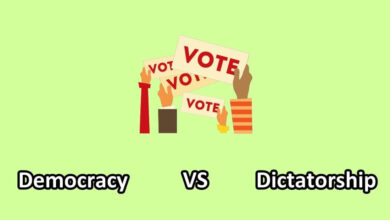Power is an omnipresent force that shapes our lives, influencing individuals, societies, and the world at large. It’s a multifaceted phenomenon, manifesting in various forms and playing a pivotal role in diverse contexts. Whether in personal relationships, professional settings, or the political arena, power is a dynamic force that can be both constructive and destructive.
In this exploration of power, we will delve into two key dimensions: Positional Power and Personal Power. Positional power is often bestowed by roles and titles, while personal power emanates from within, driven by individual qualities and attributes.
Positional Power Vs Personal Power (A Comparison)
| Positional Power | Personal Power |
|---|---|
| Positional power is a form of authority that individuals hold based on their designated roles within an organization. | Personal power is an informal influence that stems from an individual's character, skills, and relationships. |
| Positional power is a formal authority derived from designated roles. Individuals hold power based on their position within the organizational hierarchy. | Personal power is informal influence rooted in individual attributes and capabilities. Power comes from personal qualities rather than organizational roles. |
| It is tied to the specific roles and responsibilities assigned within the organization. | It emanates from the person's character, skills, and relationships, irrespective of formal roles. |
| Positional power has limited flexibility due to organizational structures and expectations associated with a particular position. | Personal power is highly adaptable and flexible, evolving with personal growth and development. |
| It relies on external validation from the organizational structure, as power is granted by the position held. | It is self-generated and relies on intrinsic qualities, reducing dependence on external validation or organizational roles. |
| Positional power is often transient, linked to the duration of holding a particular role within the organization. | Personal power is enduring, as personal power can persist beyond specific roles and continue to influence over time. |
| Positional power can positively streamline decision-making and bring order but may lead to resentment if not wielded responsibly. | Personal power promotes a positive and collaborative environment by prioritizing interpersonal relationships. |
What is Positional Power?
Positional power is derived from an individual’s position within a hierarchical structure, often conferred by titles or roles. This form of power is inherently tied to authority granted by an organization, society, or institution.
It is the ability to influence others based on the position one holds, irrespective of personal qualities or characteristics.
Examples of Positional Power in Different Contexts
In the workplace, a manager holds positional power, enabling them to make decisions and direct the team. In politics, elected officials wield positional power, shaping policies and governance.
The essence lies in the formal authority vested in the position, creating a structured framework for influence.
What is Personal Power?
Personal power, in contrast, emanates from an individual’s qualities, expertise, and interpersonal skills. It’s rooted in authenticity, charisma, and the ability to connect with others.
This type of power is not conferred by external roles but is cultivated through personal development and genuine relationships.
Examples of Personal Power in Individual and Group Settings.
In individual settings, a person who possesses deep expertise and the ability to inspire others demonstrates personal power. In group dynamics, someone with excellent communication skills and empathy can wield influence based on personal connections rather than formal authority.
Key Differences Between Positional Power and Personal Power
- Source of Influence: Positional power is tied to the position one holds, whereas personal power is rooted in the person’s character, skills, and relationships.
- Flexibility: Personal power is adaptable and flexible, evolving with personal growth, whereas positional power is often constrained by organizational structures.
- Longevity: Positional power is often transient and linked to roles, while personal power can be enduring and transcend specific positions.
- Impact on Relationships: Positively, positional power can streamline decision-making and bring order. However, it can also lead to resentment if not wielded responsibly, creating hierarchical divides. On the other hand, personal power fosters authentic connections. Leaders who prioritize personal connections build trust and loyalty, creating a positive and collaborative environment.
Role in Leadership
Leadership roles in organizations often come with positional power, granting authority to make decisions and guide the team. This form of power is structured, providing a framework for governance.
Effective leaders understand the significance of personal power. It involves connecting with team members, demonstrating empathy, and leading by example. Personal power enhances the leader’s ability to inspire and motivate beyond the constraints of formal authority.
Flexibility and Adaptability
Personal power is agile, adapting to changing circumstances. It allows individuals to navigate diverse situations, relying on qualities like resilience and emotional intelligence.
Positional power, being tied to roles, can be rigid and resistant to change. It often adheres to established protocols, potentially hindering adaptability.
Conclusion
In navigating the realms of power, understanding both positional and personal power is crucial. While positional power provides structure and authority, personal power brings authenticity and adaptability.
Reflecting on personal experiences with power can illuminate the dynamic interplay between formal authority and individual qualities. Striking a balance between positional and personal power fosters effective, authentic influence in various aspects of life.


